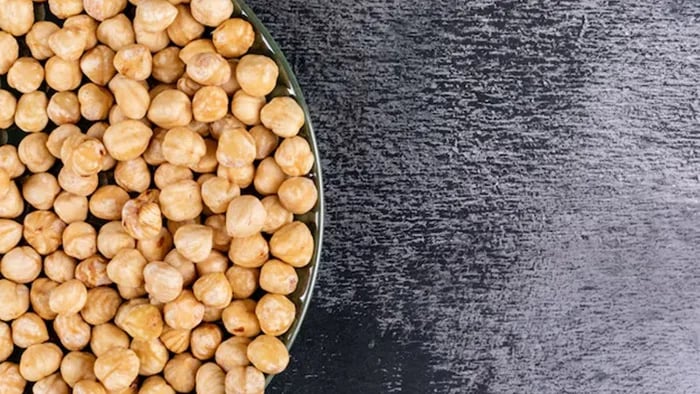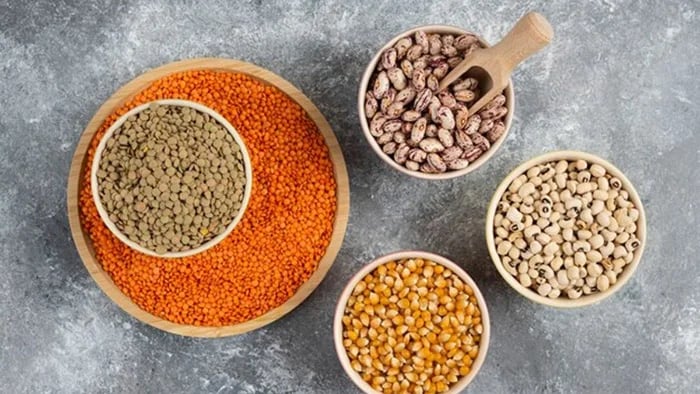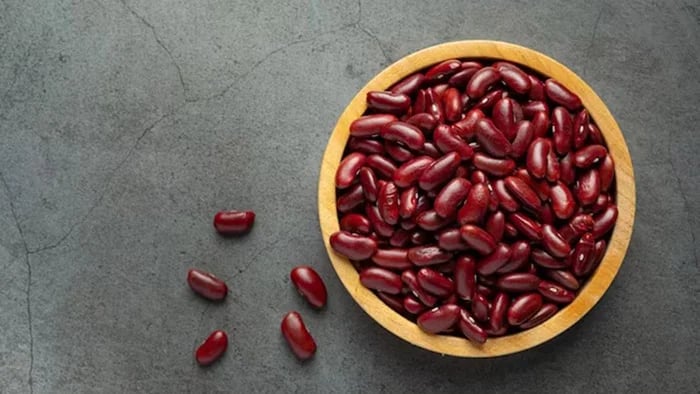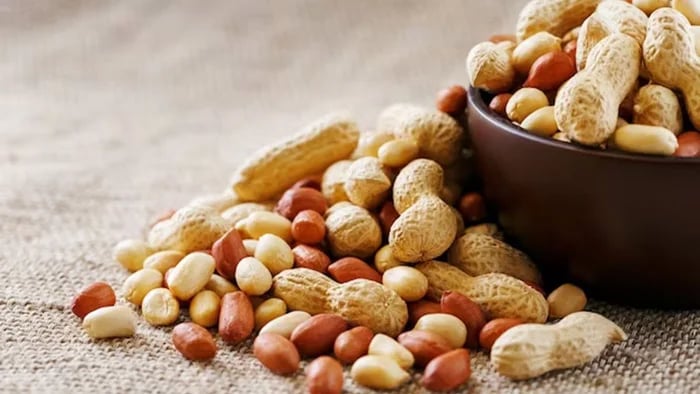- Chickpeas
- Lentils
- Peas
- Kidney beans
- Black beans
- Soybeans
- Peanuts
Introduction
It is important to ensure that your children eat a balanced diet for proper body development. A balanced diet should contain all the important nutrients, and protein is an essential one.
Protein plays many vital roles in the body. It provides amino acids, which are used to build and repair tissues and cells. Protein is also important for children’s growth and development. It helps build strong muscles, skin, bones, hair, immune system, energy levels, and overall health. Many foods include protein, like eggs, yogurt, cheese, beans, nuts, fish, seeds, and more.
Beans and legumes are the seeds and fruits of certain plants called Fabaceae. These include kidney beans, black beans, lentils, peas, chickpeas, and more. They are filled with protein, so adding them to meals like soups, tacos, and salads makes the dish much more nutritious. Eating beans and legumes regularly provides many health benefits, too. They can lower cholesterol, help control blood sugar, and promote healthy gut bacteria.
Top 7 Protein-Rich Options for Kids
1. Chickpeas

Just one cup of chickpeas provides a good amount of protein, fiber, vitamins, and minerals like iron, and manganese. Eating chickpeas may also promote gut health by feeding beneficial bacteria in the colon. Chickpeas are also associated with better blood sugar control. Their combination of protein, fiber, and nutrients makes chickpeas a nutritious addition to any diet.
2. Lentils

Lentils are a nutritional powerhouse. These small legumes are one of the best pulses for protein, fiber, vitamins, and minerals like iron, and zinc. Adding just one cup of lentils to soups, stews, salads, or side dishes provides a hefty dose of nutrition. The fiber and complex carbs in lentils can stabilize blood sugar levels.
3. Peas
A single cup contains substantial amounts of protein. It also has fiber, vitamins, and minerals. The protein, antioxidants, and fiber in peas promote gut health, healthy blood sugar levels, and increased muscle mass. Additionally, peas are high in vitamin K which aids blood clotting and bone strength.
4. Kidney beans

Kidney beans are a popular, nutrient-dense food. One cup of kidney beans contains lots of protein, fiber, vitamins and minerals like copper, manganese, and iron. The high fiber content helps slow sugar absorption and lower blood pressure. Studies show eating kidney beans can reduce risk factors for heart disease like hypertension. Overall, kidney beans are a healthy addition to increase protein intake.
5. Black beans
Black beans are a nutritional powerhouse, containing significant amounts of protein, fiber, vitamins and minerals like folate, iron, magnesium and manganese. The fiber and complex carbs in these small black legumes help slow digestion and stabilize blood sugar levels. Black beans also promote healthy gut bacteria linked to improved insulin sensitivity and blood sugar management. With a low glycemic index and densely packed nutrients, black beans are an excellent plant-based source of sustained energy and vitality. Just one cup provides a hearty dose of key vitamins, minerals and 15 grams of satiating fiber.
6. Soybeans
Soybeans are an extremely nutritious food that should be included in your kid’s diet. Packed with protein, healthy fats, fiber, vitamins, minerals, and antioxidants, soybeans provide a wide range of health benefits. The high levels of isoflavones in soybeans have been shown to reduce the risk of certain cancers. Soybeans contain essential nutrients for growth and development in children.
7. Peanuts

Though commonly thought of as nuts, peanuts are protein rich legumes that grow underground. These protein and vitamin-rich legumes contain healthy fats and nutrients that provide many health benefits. Just a half cup serving supplies a significant amount of thiamine, niacin, folate, vitamin E, iron, magnesium, and manganese. The high content of monounsaturated fats in peanuts has been linked to reduced risks of chronic illnesses like heart disease, stroke, cancer, and diabetes.
Including beans and legumes in your child's diet provides a variety of health benefits. These foods are excellent sources of protein, as well as other nutrients like fiber, vitamins, and minerals that support growth, development, and overall wellbeing. Trying to incorporate these nutritious foods into your child’s meals and snacks will go a long way in promoting a balanced diet.
Her love for storytelling began with reading her grandfather’s speeches, where Tarishi saw the power of words in creating lasting memories. Combining her passions for food and writing, she has turned her life into a fulfilling path of sharing stories that celebrate flavours and how food brings communities together.
The views expressed are that of the expert alone.
The information provided in this content is for informational purposes only and should not be considered a substitute for professional medical advice, diagnosis, or treatment. Always seek the advice of your physician or another qualified healthcare provider before making any significant changes to your diet, exercise, or medication routines.
















